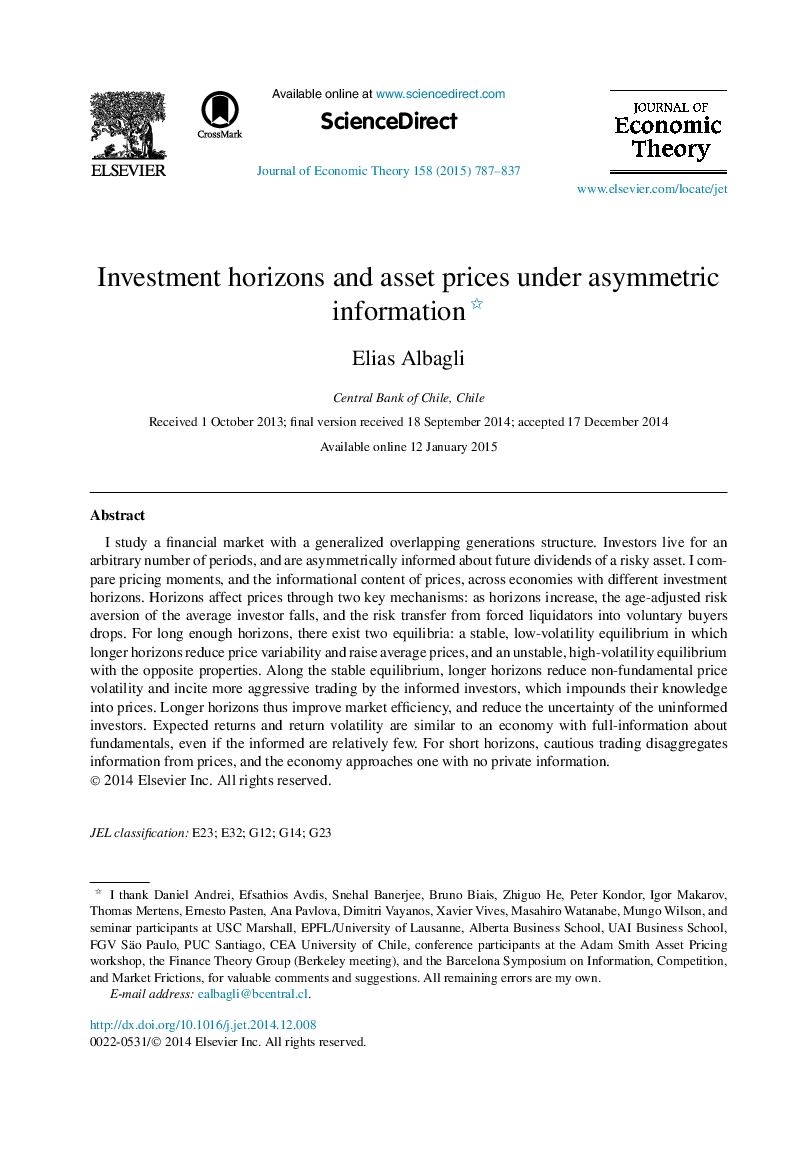| Article ID | Journal | Published Year | Pages | File Type |
|---|---|---|---|---|
| 956618 | Journal of Economic Theory | 2015 | 51 Pages |
Abstract
I study a financial market with a generalized overlapping generations structure. Investors live for an arbitrary number of periods, and are asymmetrically informed about future dividends of a risky asset. I compare pricing moments, and the informational content of prices, across economies with different investment horizons. Horizons affect prices through two key mechanisms: as horizons increase, the age-adjusted risk aversion of the average investor falls, and the risk transfer from forced liquidators into voluntary buyers drops. For long enough horizons, there exist two equilibria: a stable, low-volatility equilibrium in which longer horizons reduce price variability and raise average prices, and an unstable, high-volatility equilibrium with the opposite properties. Along the stable equilibrium, longer horizons reduce non-fundamental price volatility and incite more aggressive trading by the informed investors, which impounds their knowledge into prices. Longer horizons thus improve market efficiency, and reduce the uncertainty of the uninformed investors. Expected returns and return volatility are similar to an economy with full-information about fundamentals, even if the informed are relatively few. For short horizons, cautious trading disaggregates information from prices, and the economy approaches one with no private information.
Related Topics
Social Sciences and Humanities
Economics, Econometrics and Finance
Economics and Econometrics
Authors
Elias Albagli,
